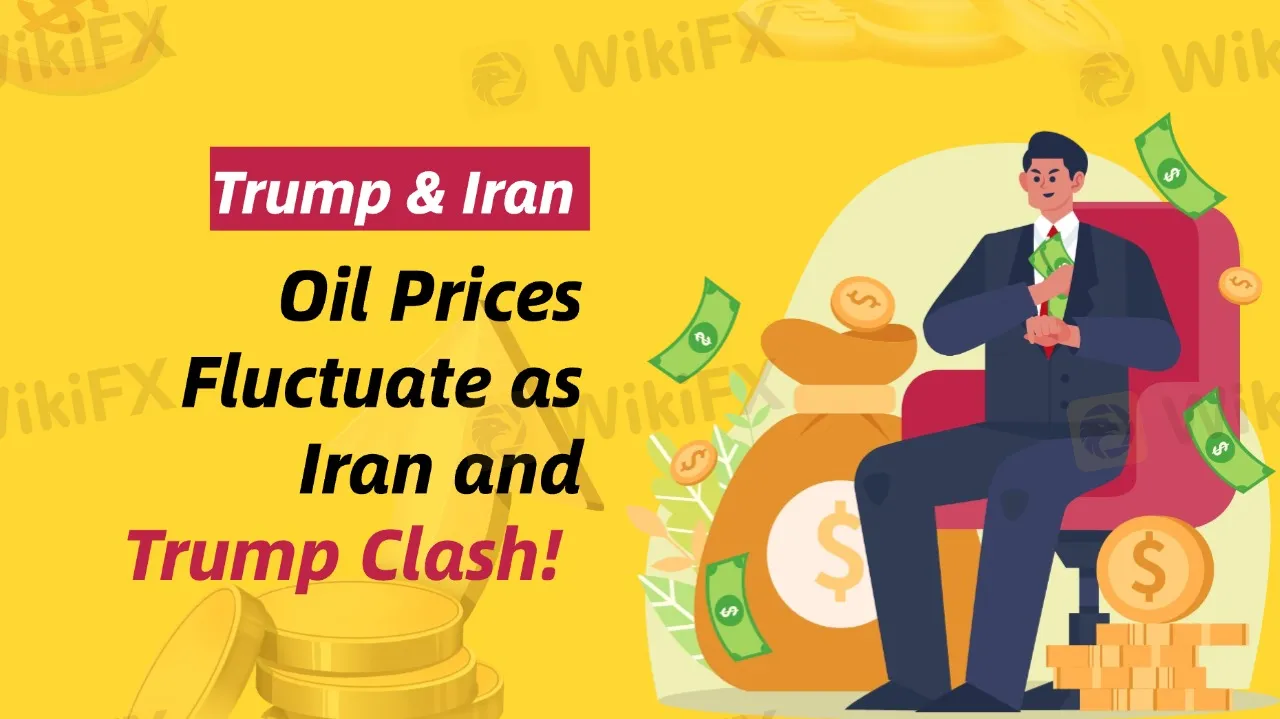简体中文
繁體中文
English
Pусский
日本語
ภาษาไทย
Tiếng Việt
Bahasa Indonesia
Español
हिन्दी
Filippiiniläinen
Français
Deutsch
Português
Türkçe
한국어
العربية
Oil Prices Fluctuate as Iran and Trump Clash!
Abstract:As Trump once again implements the "maximum pressure" policy on Iran, oil prices have become increasingly volatile, and the atmosphere in the international markets has grown more tense.

The Iranian government has consistently stated that it is willing to negotiate with the U.S., but under the condition that such talks are not conducted within the framework of the “maximum pressure” policy. Iranian Foreign Minister Abbas Araghchi clearly stated that any negotiations for lifting sanctions must be based on equality and respect, not under the threat of “maximum pressure,” as this cannot be considered negotiation, but rather surrendering to Iran.
Additionally, Iran‘s Supreme Leader Ayatollah Ali Khamenei has explicitly pointed out that he does not support negotiations with the U.S., calling Trump’s diplomatic policy reckless.
Trump's Pressure on Iran
The Trump administration not only withdrew from the Iran nuclear deal but also reinstated severe sanctions on Iran, even targeting the countrys oil exports. After the U.S. withdrew from the agreement in 2018, Trump attempted to force Iran to make concessions on nuclear issues through economic pressure. Recently, the U.S. intensified its sanctions on Iran, announcing sanctions on individuals and companies involved in transporting Iranian oil to China.
Trump has clearly stated that Iran cannot possess nuclear weapons and has called for a “verified nuclear peace agreement,” while Iran insists that its nuclear program is for peaceful purposes and denies any intention to develop nuclear weapons. As sanctions continue to escalate, the tension between the two sides is also increasing.
In response to Trump‘s “maximum pressure,” Iran has taken a hard stance, stating that it will never negotiate under the increasing sanctions. Iranian Oil Minister Bijan Zanganeh stated directly that Trump's maximum pressure policy, particularly the aim to reduce Iran's oil exports to zero, has failed. As restrictions on Iranian oil exports become more severe, Iran's countermeasures become more complex, showing that the U.S. cannot easily achieve its goal of bringing Iran’s oil exports to zero.
The ongoing battle between Iran and Trump has created a volatile situation for oil prices. For global investors, closely monitoring the diplomatic and economic policy developments between the two countries will help in navigating the opportunities and risks posed by oil price fluctuations.
Disclaimer:
The views in this article only represent the author's personal views, and do not constitute investment advice on this platform. This platform does not guarantee the accuracy, completeness and timeliness of the information in the article, and will not be liable for any loss caused by the use of or reliance on the information in the article.
Read more

The Impact of Interest Rate Decisions on the Forex Market
Interest rate changes determine currency attractiveness, influencing capital flows and exchange rate trends. Understanding this mechanism helps investors navigate the forex market effectively.

How a Housewife Lost RM288,235 in a Facebook Investment Scam
A 47-year-old housewife in Malaysia recently fell victim to an online investment scam, losing a substantial sum of RM288,235 after engaging with a fraudulent scheme advertised on Facebook.

Interactive Brokers Launches Forecast Contracts in Canada for Market Predictions
Interactive Brokers introduces Forecast Contracts in Canada, enabling investors to trade on economic, political, and climate outcomes. Manage risk with ease.

Bank Negara Malaysia Flags 12 New Companies for Unauthorised Activity
Bank Negara Malaysia (BNM) has updated its Financial Consumer Alert List (FCA List) by adding 12 more entities, reinforcing its efforts to warn the public against unregulated financial schemes. Check if your broker made the list!
WikiFX Broker
Latest News
Interactive Brokers Launches Forecast Contracts in Canada for Market Predictions
Authorities Alert: MAS Impersonation Scam Hits Singapore
INFINOX Partners with Acelerador Racing for Porsche Cup Brazil 2025
Billboard Warns of Crypto Scams Using Its Name – Stay Alert!
The Impact of Interest Rate Decisions on the Forex Market
STARTRADER Spreads Kindness Through Ramadan Campaign
Rising WhatsApp Scams Highlight Need for Stronger User Protections
A Trader’s Worst Mistake: Overlooking Broker Reviews Could Cost You Everything
How a Housewife Lost RM288,235 in a Facebook Investment Scam
The Daily Habits of a Profitable Trader
Currency Calculator


